Raw Diet FAQs
Are you considering switching your dog to a raw diet?
Read these FAQs to help you get started today!
Most healthy puppies and adult dogs can switch to raw immediately. Which means you can feed kibble today and start with raw food tomorrow.
Puppies and adult dogs that experience regular digestive upset and/or have been fed kibble their entire life may need a slower transition that involves removing a small portion of their current diet and replacing it with raw. This process usually lasts about a week but may take longer depending on the dog.
Dogs have digestive systems that are designed to handle bacteria much easier than humans can. Dogs are unlikely to get sick from raw food unless they are already compromised.
• Stronger immune system
• Cleaner teeth & gums
• Better breath
• Healthy skin & shiny coat
• A smaller stool
• Less odor (body & stool)
• Increased muscle tone
• Reduced risk of allergies
A balanced raw diet is composed of edible bone, organ meat, and muscle meat.
When feeding, "organ meat” refers to offal, or secreting organs, such as the liver.
Other organs, such as the heart and lungs, are fed as muscle meat.
Certain fruits and vegetables are also acceptable to add to the raw diet in moderation.
Organ meat acts as a multi-vitamin for your dog. Organs provide vitamin A, vitamin B, vitamin D, vitamin E, vitamin K, phosphorus, magnesium, manganese, iron, copper, iodine, potassium, sodium, zinc, EPA, DHA, and omega 3 fatty acids.
Serving a variety of organs provides a variety of benefits to your dog:
• Brains are high in iron, zinc, and copper
• Eyes are rich in DHA, an important omega-3 fatty acid that fights inflammation
• Liver contains lots of vitamin A. This acts as a powerful antioxidant. It is also a great source of folic acid and B vitamins. Do not feed more than 5% liver as it can cause vitamin A toxicity.
• Lung should be fed as a muscle and is high in protein and a good source of vitamins and minerals.
• Pancreas helps support your dog’s pancreas function. You should not feed more than 2 oz per 20 lbs. of body weight per day.
• Heart is a great source of protein, B vitamins, iron, and taurine.
• Tripe has loads of digestive enzymes that help cleanse blood and remove toxins, parasites, and fungus. Tripe contains the essential fatty acids linoleic acid and linolenic acid and has a 1:1 ratio of calcium to phosphorus. Tripe can be very rich so be sure to keep an eye on your dog when introducing it to the diet.
• Kidneys provide a great source of B vitamins, vitamin A, vitamin E, vitamin K, iron, and zinc.
• Trachea is rich in glucosamine and chondroitin
Dogs have very short digestive tracts that move much quicker than humans’ digestive systems. Bacteria is generally moved through the system before they have time to colonize. Dogs also have very acidic stomachs (a pH of between 1 and 2) which assists in the breaking down of meat and helps to prevent bacteria from growing.
Yes! Dogs get the plant material they need from the herbivores they eat so a balanced raw diet will give the dog everything they need.
Absolutely not! This idea is totally a myth. Dogs often really enjoy their raw diet so they are very eager to eat, but unless the dog has pre-existing resource guarding issues, they will not become aggressive just because they are fed a raw diet.
The act of pulling meat off of a bone mimics a flossing action for dogs. While chewing the bone helps scrape plaque and tartar off the teeth. Always supervise your dog while chewing a bone of any kind. Never feed cooked bones. Once the bone is cooked it will become very hard and splinter.
There is a common misconception that because kibble is hard, it helps clean and scrape the teeth. It actually has the opposite effect. Kibble will get stuck in your dog’s teeth and cause plaque and tartar build up.
If your dog has preexisting digestive issues, it is best to transition slowly. Once your dog is fully transitioned to the raw diet, you will start to notice your dog’s digestion improving! Since our dog’s digestive tracts were made to thrive on raw, you will notice how easily they digest the food.
A raw diet contains a lot more moisture than kibble alone. This moisture in the diet helps to keep our dog hydrated, resulting in less thirst.
Not all veterinarians will agree with a raw diet. Your vet should always have an open mind while discussing your personal preferences to care for your dog. There are also many veterinarians that DO support a raw diet. If you are having a hard time working with your current veterinarian, you can always find a new one.
Feeding ONLY ground muscle meat from the grocery store will not be nutritionally fulfilling and is not a balanced raw diet. This can lead to many vitamin deficiencies that could form major health issues.
Raw bones are especially safe since they are soft and digestible. It is important to always supervise your dog with any bones or long lasting chews. Cooked bones are extremely unsafe as they will harden and splinter when cooked.

